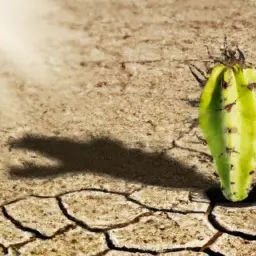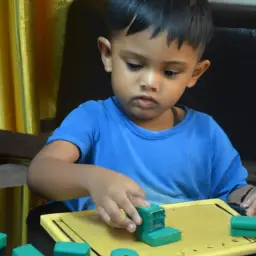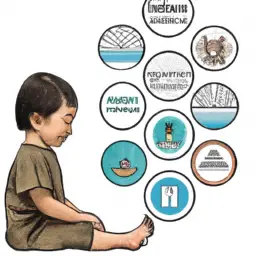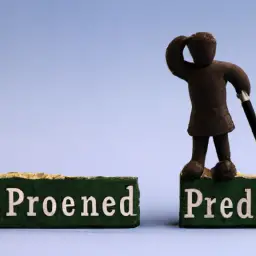Are you a parent who wants to raise resilient and emotionally intelligent children? Do you want your kids to develop grit and the ability to bounce back from challenges? Teaching these qualities to children can seem daunting, but it doesn’t have to be. By using effective strategies, you can help your kids develop the skills they need to thrive in life.
Grit refers to the perseverance and passion for long-term goals. Emotional intelligence, on the other hand, is the ability to recognize and manage one’s emotions and those of others. Both qualities are essential for success in life, and as a parent, you can help your children develop them.
In this article, we will explore ten effective strategies for teaching grit and emotional intelligence to your children. These strategies are simple, practical, and can be implemented easily into your daily routine. By using these techniques, you can help your children develop the skills they need to succeed in life.
Key Takeaways
- Grit and emotional intelligence are important qualities to develop in children for their long-term success and well-being.
- Encouraging a growth mindset, fostering self-awareness, practicing mindfulness, and developing empathy are some effective strategies for teaching grit and emotional intelligence to children.
- Praising effort and setting achievable goals can also help children develop perseverance and resilience.
- Teaching children about the mind-body connection can also be helpful in developing self-awareness and emotional intelligence.
Define Grit and Emotional Intelligence
Don’t know what grit and emotional intelligence are? It’s time to get educated and start instilling these crucial skills in the next generation.
Understanding grit refers to the ability to persevere through difficult situations and setbacks while maintaining a long-term goal.
Emotional intelligence, on the other hand, is the ability to be aware of, control, and express one’s emotions in a healthy and productive way, while also understanding and empathizing with the emotions of others.
Teaching children grit and emotional intelligence has numerous benefits. Children who possess these skills are better equipped to handle challenges, setbacks, and stress, leading to greater resilience and perseverance.
Additionally, emotional intelligence allows children to develop strong relationships, communicate effectively, and resolve conflicts in a positive manner.
By teaching children these skills, we can help them succeed not just academically, but also in their personal and professional lives.
Encourage a Growth Mindset
You can cultivate a mindset that embraces challenges and sees failure as an opportunity for growth by praising effort and persistence. Instead of focusing solely on the end result, encourage your child to enjoy the process of learning.
Creating challenges for your child can help them develop grit and perseverance. For instance, if your child struggles with reading, you can set a goal to read a certain number of books in a month. As your child works towards this goal, praise their effort and progress. This will help them understand that it’s not about the end result, but rather the effort and progress that was made.
In addition, it’s important to teach your child that making mistakes is a natural part of the learning process. Praising effort rather than achievement can help your child understand that their worth is not defined by their successes or failures. Encourage your child to try new things and take risks, even if it means making mistakes.
Celebrate their progress and encourage them to learn from their mistakes. This will help your child become resilient and develop a growth mindset, which will serve them well throughout their life.
Foster Self-Awareness
Developing self-awareness is crucial for children to understand their own emotions and reactions, ultimately leading to a better understanding of themselves and those around them. Encourage your child to explore their feelings by journaling. Journaling benefits include improved self-esteem, stress reduction, and enhanced creativity. By writing down their thoughts and emotions, children can process and organize their feelings, gaining a deeper understanding of themselves.
Teaching your child about the mind-body connection can help them become more aware of their physical and emotional states. Encourage them to pay attention to how their body feels in different situations, and connect those physical sensations to their emotions. This can help them recognize when they’re feeling stressed or anxious and develop coping strategies to manage their feelings.
By fostering self-awareness in your child, you’re providing them with a valuable tool to navigate their emotions and build resilience.
Practice Mindfulness
By incorporating mindfulness practices into your daily routine, you can help your child become more aware of their thoughts and emotions, leading to improved overall well-being and resilience. Mindfulness is the practice of being present in the moment and paying attention to your thoughts and feelings without judgment. Mindful activities can include anything from yoga and meditation to simply taking a deep breath and focusing on your senses. By teaching your child to be more mindful, you can help them develop the skills they need to manage stress, anxiety, and other difficult emotions.
One of the most effective ways to practice mindfulness with your child is through mindful breathing exercises. These exercises involve taking slow, deep breaths and focusing on the physical sensations of each inhale and exhale. To help your child get started, you can use a simple three column table to guide them through the exercise. In the first column, have your child write down a list of things they are grateful for. In the second column, have them focus on their breath and take three slow, deep breaths. In the third column, have them write down how they feel after completing the exercise. By practicing mindful breathing exercises regularly, your child can develop a greater sense of self-awareness and emotional resilience.
Develop Empathy
Developing empathy is essential in teaching emotional intelligence to children. The first step is to put yourself in someone else’s shoes and try to understand how they may be feeling. This allows children to recognize and understand the emotions of others, and to respond appropriately to those emotions.
To help children develop empathy, you can use role playing exercises that allow them to act out different scenarios and put themselves in someone else’s shoes. You can also encourage community service activities, such as volunteering at a food bank or participating in a beach clean-up. These activities give children the opportunity to see the world from different perspectives and understand the needs of others.
To model empathy, demonstrate kindness and compassion towards others, and listen actively to your child’s emotions and needs. By doing so, you will help your child develop the emotional intelligence and grit that will serve them well throughout their lives.
Encourage Perseverance and Resilience
Now that you’ve learned about developing empathy in children, it’s time to focus on encouraging perseverance and resilience.
Building resilience is a crucial aspect of developing grit in children. Grit, after all, isn’t just about passion and perseverance; it’s also about overcoming challenges and setbacks. In order for children to develop grit, they must learn to bounce back from failures and setbacks and keep pushing forward.
One effective way to promote determination in children is by praising effort and hard work, rather than just natural ability. This helps children understand that success isn’t just based on talent, but also on perseverance and hard work.
Another way to encourage perseverance is by setting small, achievable goals for children and celebrating their progress along the way. This helps children see that success is a journey, not just a destination.
By building resilience and promoting determination, you can help children develop the grit they need to succeed in life.
Frequently Asked Questions
How can parents and teachers incorporate grit and emotional intelligence into everyday activities and lessons?
To incorporate grit and emotional intelligence into everyday activities and lessons, you can try engaging your children in mindful activities and role playing to help them understand and manage their emotions.
Encourage creative expression through art, music, or writing to help them process their feelings.
Use positive reinforcement to acknowledge their efforts and progress in building resilience and perseverance.
These techniques can be used in any setting, whether at home or in the classroom, to help children develop the skills they need to succeed in life.
Are there any specific age ranges that are most receptive to learning about grit and emotional intelligence?
When it comes to learning about grit and emotional intelligence, age range significance and learning receptivity play a crucial role.
Young children tend to be more open and receptive to new concepts, whereas preteens and teenagers may be more resistant or skeptical. However, it’s never too late to start teaching these skills and it’s important to tailor your approach based on the individual child’s age and developmental stage.
By incorporating age-appropriate activities and conversations, you can help children of all ages develop the resilience, perseverance, and emotional intelligence they need to succeed in life.
What are some common misconceptions about grit and emotional intelligence that may hinder effective teaching?
Common misconceptions about grit and emotional intelligence can hinder effective teaching of these concepts. It’s important to understand that grit isn’t just about working hard, but also about perseverance in the face of challenges and setbacks.
Similarly, emotional intelligence isn’t just about being aware of one’s own emotions, but also about understanding and empathizing with the emotions of others. It’s also a misconception that grit and emotional intelligence are innate traits that can’t be taught or developed.
In fact, research has shown that these skills can be learned and strengthened through intentional practice and guidance. Understanding these misconceptions is crucial in effectively teaching grit and emotional intelligence to children.
Are there any potential negative effects of emphasizing grit and emotional intelligence too heavily in children’s education?
If you emphasize grit and emotional intelligence too heavily in children’s education, there are potential drawbacks. Balancing priorities is key.
While it’s important to teach children these valuable life skills, it’s equally important to ensure they don’t feel overwhelmed or pressured to always be ‘gritty’ or emotionally intelligent. Children need to understand that it’s okay to fail and experience negative emotions, and that these experiences can actually help them grow and become more resilient.
It’s important to strike a balance and incorporate other important values and skills into their education, such as creativity, empathy, and teamwork.
Ultimately, the goal should be to help children develop into well-rounded, emotionally healthy individuals who are equipped to navigate life’s challenges.
How can parents and teachers assess and track progress in developing grit and emotional intelligence in children?
To assess and track progress in developing grit and emotional intelligence in children, you can start by setting clear goals and objectives. This will help you determine what specific skills and behaviors you want to see in the child.
Next, you can use various assessment tools such as observation, self-reflection exercises, and feedback from others to evaluate their progress. It’s important to provide ongoing support and guidance to help children develop these skills over time.
You can also keep a record of their progress and celebrate their successes along the way. Remember, developing grit and emotional intelligence is a process and it takes time, so be patient and consistent in your efforts.
Conclusion
Congratulations! You’ve learned some effective strategies for teaching grit and emotional intelligence to children.
By encouraging a growth mindset, fostering self-awareness, practicing mindfulness, developing empathy, and encouraging perseverance and resilience, you can help children build the skills they need to succeed in both their personal and professional lives.
It may take time and patience, but with your guidance, children can learn to handle life’s challenges with grace and confidence. Keep in mind that every child is unique, so be flexible in your approach and tailor your teaching to their individual needs.
By instilling these skills early on, you’re setting them up for a lifetime of success. Keep up the great work!















































































































